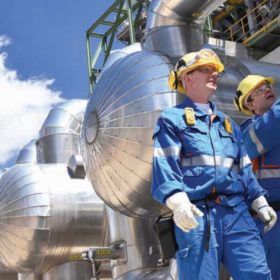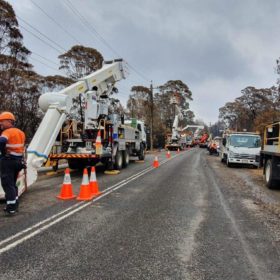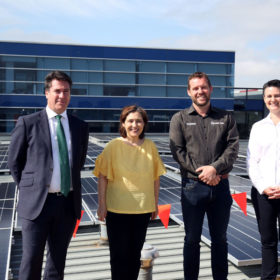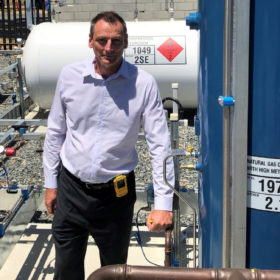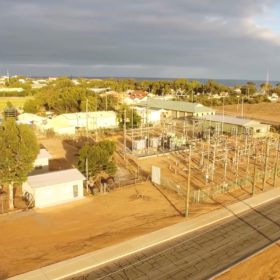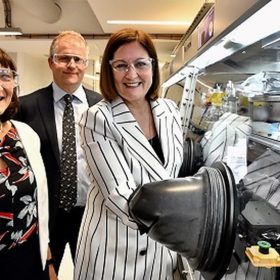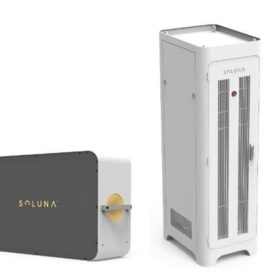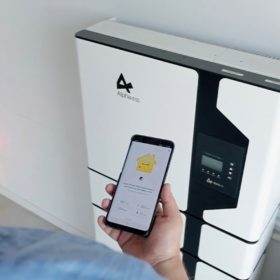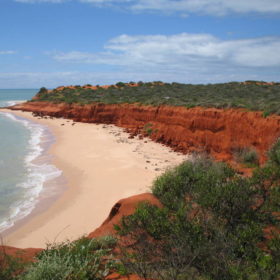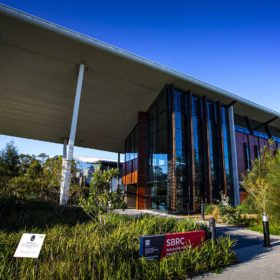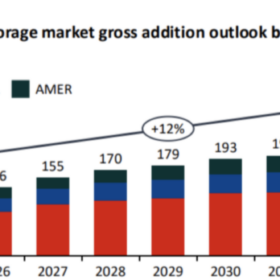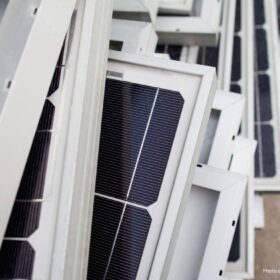WA Govt set to fund seven renewable hydrogen feasibility studies
The WA Government has allocated funding from its Renewable Hydrogen Fund toward seven feasibility studies that could pave the way for significant renewable hydrogen projects around the state.
NSW to Victoria interconnector disconnected as bushfires threaten transmission
Australia’s bushfire crisis is beginning to expose a National Energy Market over-reliant on vulnerable individual elements. Does Australia’s changing environment necessitate a localised energy future?
Shared solar switched on at Melbourne apartment block
A microgrid installed on an apartment block in Melbourne will provide clean and affordable electricity to 52 low-income households. It is the first site of Ovida’s Community Energy Hubs project, which will deliver shared solar PV and batteries to more multi-tenanted buildings in the city.
ATCO begins blending green hydrogen into gas network
The Clean Energy Innovation Hub has hit a major milestone as ATCO started testing blending renewable hydrogen into the on-site natural gas network in Jandakot.
WA’s largest battery on the way to Kalbarri microgrid
Western Australia’s (WA) publicly-owned grid operator, Western Power, has announced its largest battery is on its way to Kalbarri. The battery, the biggest utility-scale battery ever to be connected to the Western grid network, departed from Perth today on its way north to the laid-back coastal town.
Hi-tech energy storage center opens at Deakin University
The new StorEnergy centre – supported with a $4.4 million Federal Government grant – will produce battery materials on a commercial scale and seek to increase knowledge and develop innovative solutions for Australia’s energy needs.
New battery brand enters Australian market with plans for local recycling
The first commercial shipment of China-made Soluna batteries has reached the Australian shores. The new battery brand will be sold locally by a joint venture between Lithium Australia and China’s DLG Group.
Evergen goes to the people with crowdfunding campaign
Evergen is looking to boost its growth in Australia and expand overseas as it opens a major capital raising campaign to private and wholesale investors on VentureCrowd.
Western Australia to consume its carbon budget 20 years too early, report finds
Under the business-as-usual scenario, Western Australia could use up its Paris-Agreement 1.5°C compatible carbon budget within 12 years but a massive ramping up of renewable energy capacity would unlock significant economic opportunities for the state, finds a report by Berlin-based science and policy institute Climate Analytics.
University of Wollongong sets benchmark for sustainable buildings in Australia
The University of Wollongong’s Sustainable Buildings Research Centre has become the first building in Australia to achieve full marks under the world’s toughest sustainability standard for buildings, the Living Building Challenge. With 468 solar panels to support net-zero energy, an onsite rainwater system to enable net-zero water performance, and use of environmentally safe and reused building materials, the building is a demonstration of the value of the research the SBRC team carries out.
